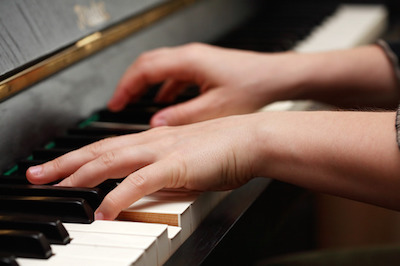If you look back to the greatest piano players of all time, it’s only natural to wonder which of them were left handed. It’s only natural that some of them were; after all, ten percent of the population is left handed.
Beethoven is rumored to have been left handed. So is Brahms. So is Rachmaninoff. Even Mozart’s music feels ambidextrous, as if it were written for both hands to have equal control.
Yet is there a difference when playing the piano whether you approach it from a left handed or right handed way?
As it turns out, lefties may have a certain advantage when it comes to learning how to play the piano.
While many instruments are clearly designed to be played right handed, pianos are no different. Most melody is played with the right hand. And if you look towards any written song, you’ll find that the right hand far outplays the left on average. Clearly music is written for the side of the brain that controls the right side.
All piano students must overcome resistance to having the two hands work separately yet together. Pianists must coordinate the activity of both brain hemispheres, since each is responsible for the use of a separate hand. Because lefties have to work harder to get the right hand in shape, they actually grow stronger at skill in the process.
Left and right handed piano players perform equally well when tested for their musicality skills. Left handedness does not seem to present and disadvantages. Over time, whether the pianist is left or right handed, the performance of the right hand always displays a greater evenness between the notes, and therefore a higher degree of motor skill and control than in the left. The more practice a person has, the better performance they will have.
The key is practice. The rest seems to fall into place.

